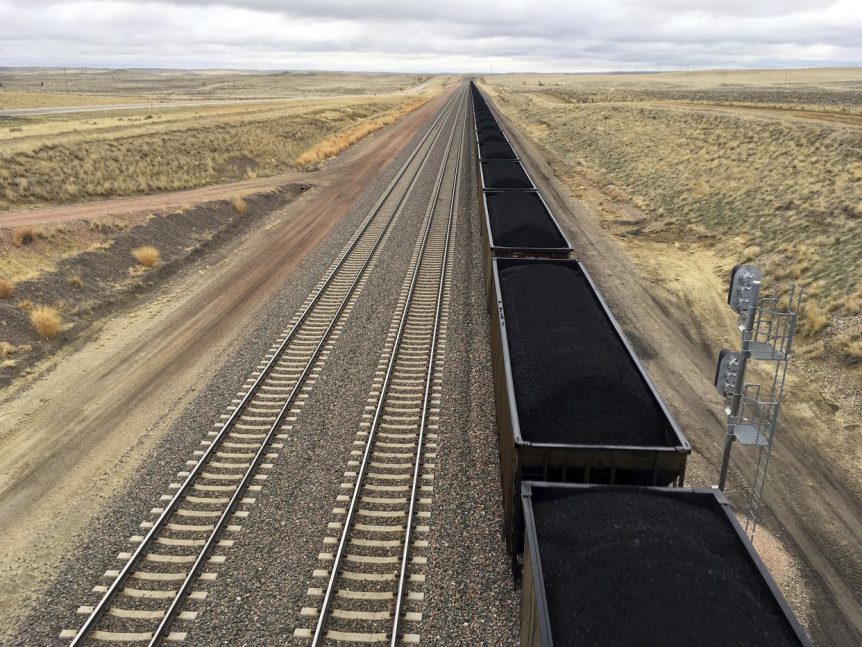The reality is that the economic prospects for West Coast coal exports have collapsed.
LONG before Big Coal hitched its wagon to President Donald Trump, the industry had tied its fortunes to another would-be savior: exports. Starting in 2010 the industry proposed a slew of new West Coast export terminals, all aimed at supplying coal to feed Asia’s seemingly limitless demand.
Today, all but one of those Pacific Northwest export proposals are dead, abandoned by investors or stymied by local opposition. On Friday, the Washington state Department of Ecology will publish the final environmental impact statement on the last remaining project, the Millennium Bulk Terminals facility in Longview. And if history is any guide, the terminal’s backers will use the occasion to trumpet the alleged benefits of coal exports, portraying their project as an economic bonanza that will create stable jobs and robust growth.
Don’t believe a word of it.
The reality is that the economic prospects for West Coast coal exports have collapsed. China’s demand for coal, which once seemed limitless, has been falling for three consecutive years. India’s coal imports fell last year and are projected to drop even further as the country increasingly taps domestic coal reserves to fuel its power plants. And while bad weather and shifts in Asian economic policy still cause temporary spikes in international coal prices, the futures market predicts that for most of the next five years coal prices will remain far too low for U.S. exporters to earn significant profits selling to Asia.
These facts explain why Wall Street — once bedazzled by visions of a lucrative Pacific Rim coal trade — has turned its back on West Coast coal exports.
West Coast export projects face a fundamental problem: Asian markets are awash in cheap coal, making it all but impossible for U.S. coal companies to profit from shipping their coal to power plants halfway around the world. U.S. companies face stiff competition from better-positioned rivals — not only from China’s massive and rapidly modernizing coal industry, but also from low-cost competitors in Russia and Indonesia.
Just as important, coal-fired power is yesterday’s technology: a dirty holdover from the 19th century that is losing out to cleaner and increasingly cheaper power sources. Facing public unrest in smog-choked cities, Chinese policymakers have made massive investments in wind, solar and hydropower.
Market trends have forced U.S. coal companies to back away from their export commitments. Coal giant Cloud Peak Energy — the best positioned of any company in the vast Powder River Basin to profit from coal exports — recently crowed to investors that it had negotiated an end to its export obligations, freeing them from a strategy that had cost them dearly for years. Cloud Peak got off easy. Peabody Energy and Arch Coal, the top two coal companies in the U.S., both collapsed into insolvency last year, overwhelmed by the debt they took on to buy export-oriented mines to feed Asian demand that never materialized.
Given the realities, why haven’t the backers of the Millennium terminal given up? The answer has to do with arcane details of global finance. Millennium is controlled by an international private equity firm, registered in the Cayman Islands, that maintains a portfolio of high-risk bets around the world. Like a gambler who spreads bets across the table, the firm doesn’t need every bet to pay off. It doesn’t even need to build successful companies. It only needs to find investors willing to buy their projects.
So far, Wall Street remains unconvinced by tall tales of coal-export riches. But the firm’s disinformation campaign has deceived many Longview residents — legitimately eager for new jobs in their community — about the increasingly dismal financial prospects for coal exports. Without doubt, Millennium’s owners will pay themselves handsomely regardless of whether the project succeeds. But the ongoing turmoil in Asian coal markets suggests that they could leave the community of Longview with little more than a cleanup mess and the sour taste of unfulfilled promises.


